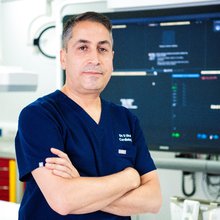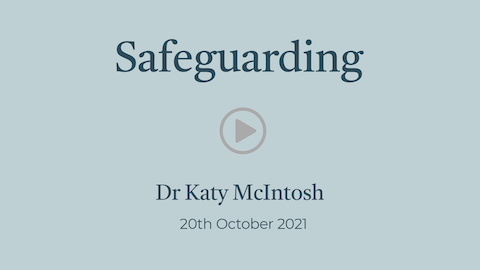Course
Wednesday 27th September 2023
Sports Cardiology
Speaker: Dr Salahaddin Ubaid

OUT OF COURTESY TO OUR SPEAKER, PLEASE LET OUR ADMINISTRATOR SOPHIE FIELD KNOW IF YOU CAN NO LONGER ATTEND AND CANCEL YOUR PLACE...
Aim To have an overview of sports cardiology
Objectives:
1. To be able to assess, investigate and manage sports related heart symptoms such as palpitations, shortness of breath and dizziness
2. To review the detection and management of heart conditions associated with a family history of sudden cardiac death (SCD).
3. To be able to recommend types of exercise (what to do and what not to do) in healthy individuals
4. To discuss 'wearable technology and your heart'
About the speaker
Dr Salahaddin Ubaid
Dr Salahaddin Ubaid is a UK trained consultant interventional Cardiologist working at Cheltenham General and Gloucestershire Royal hospitals. Additionally, he holds the position of Honorary Clinical Lecturer and Clinical Tutor with the University of Bristol.
drsalahaddinubaid.com
Dr Ubaid graduated in 2001. He obtained Membership of the Royal College of Physicians (MRCP) in 2007. He also passed the European Exam in Core Cardiology, formerly known Knowledge based assessment, in 2014. He completed his general and interventional cardiology training in the West Midlands and worked across many large tertiary cardiac centers, including University Hospitals Queen Elizabeth, Birmingham, University Hospitals of North Midlands, University Hospitals Coventry and Warwickshire and New Cross Hospital. Following completion of cardiology training, he undertook 12 months interventional cardiology fellowship at University Hospitals Queen Elizabeth, Birmingham where he further consolidated his skills and experience in complex coronary and structural heart interventions, particularly TAVI.
Dr Ubaid was awarded the Certificate of Excellence in Interventional Cardiology Training from the European Association of Percutaneous Cardiovascular Interventions (EAPCI) Paris, France. He is fully accredited by the British Society of Echocardiography in transthoracic and transesophageal echocardiography.
Dr Ubaid was the first cardiologist world-wide to conduct novel research comparing the effectiveness of a new antiplatelet drug in patients presenting with heart attack. In February 2020, he was awarded a Doctor of Medicine (MD) degree from the University of Birmingham for his novel research work. He was the runner up for the Young Investigator Award from the British Cardiovascular Intervention Society (BCIS) in 2017. Dr Ubaid has numerous publications and has presented in cardiology conferences on a national and international level.
He has substantial experience in the management of patients with a wide range of general heart conditions and specialises in the management of coronary heart disease, cardiovascular risk assessment, cardiovascular diseases prevention, and cardiac rehabilitation. In addition, Dr Ubaid has a special interest in sports cardiology, and has completed the necessary training in association with the European Association of Preventive Cardiology, Paris, France.
Dr Ubaid is very keen on medical education. He currently holds the position of Honorary Clinical Lecturer and Clinical Tutor with the University of Bristol. He was awarded a Certificate of “Excellent Cardiology Teaching” from the University of Birmingham, whilst working as a cardiology research and educational fellow.
The symptoms that can be investigated, heart conditions that can be treated and the procedures that can be undertaken by Dr Ubaid are summarized below:
Symptoms
Chest pain
Shortness of breath
Palpitations
Dizzy spells / lightheadedness
Faints / blackouts / collapse
Heart murmurs
High blood pressure related symptoms
Exercise related symptoms such as palpitations, shortness of breath and dizziness
Conditions
1: General and Interventional Cardiology
Coronary artery disease (stable and unstable angina, heart attack)
Spontaneous coronary artery dissection (SCAD)
Heart rhythm problems such as atrial fibrillation and atrial flutter
Heart valve diseases, mainly aortic valve stenosis, mitral valve prolapse and mitral valve regurgitation
High blood pressure (Hypertension)
High Cholesterol including familial hypercholesteraemia
Heart failure
Stress induced cardiomyopathy, also known as Broken-heart syndrome or Takotsubo cardiomyopathy
Hypertrophic cardiomyopathy
Cancer treatment and your heart
COVID-19 and your heart
Diabetes and your heart (diabetes related cardiac conditions)
Endocarditis
Older adults and heart disease
Myocarditis
Pulmonary embolism (clots in the lungs)
Pericardial diseases such as pericarditis
2: Sports Cardiology
Identification of cardiovascular diseases and risk stratification in individuals participating in recreational (for leisure) and competitive (for performance and winning) sports
Assessment, investigations and management of sport related heart symptoms such as palpitations, shortness of breath and dizziness
Exercise recommendations (what to do and what not to do) for exercise and sports in healthy individuals
Exercise recommendation and prescription for patients with:
Angina
Aging individuals
Atrial fibrillation
Aortopathy
Heart attack
Heart valve disease, aortic and mitral valves
Heart failure
Heart rhythm abnormalities
Cardiomyopathies
Congenital heart disease
Myocarditis and pericarditis
Implantable cardiac devices
Cancer patients
Chronic kidney disease
Pregnancy
Return to sport and exercise following cardiovascular events such as heart attack
Sports pre-participation cardiovascular screening (competitive and recreational sports) for individuals of all ages, aimed at the detection and management of heart conditions associated with sudden cardiac death (SCD). This includes:
Screening adolescent and young athletes, older than 14 years of age
Screening for members of various sporting disciplines
Screening for school students and the general population
Screening athletes with a family history of sudden cardiac death
Cardiovascular Safety assessment at Sports Arenas
Training sports organizations staff, schools and other sports institution’s personnel the skills of cardiopulmonary resuscitation (CPR) and the use of Automatic External Defibrillators (AED)
Wearable technology and your heart (smart watches and fitness trackers)
3: Cardiovascular Risk Factors; Assessment, Prevention, Management, Secondary Prevention and Cardiac Rehabilitation
Cardiovascular risk assessment in healthy individuals (assess risk of developing cardiovascular events)
Cardiovascular risk assessment in patients undertaking non-cardiac operations
Cardiovascular disease prevention (Heart and vascular diseases such as heart attack and stroke)
Cardiovascular rehabilitation (physical and psychological recovery following a cardiac event such as a heart attack)

Free Course Taster
To see how becoming a GGPET member can benefit you, here's a sample of one of our recent courses.


